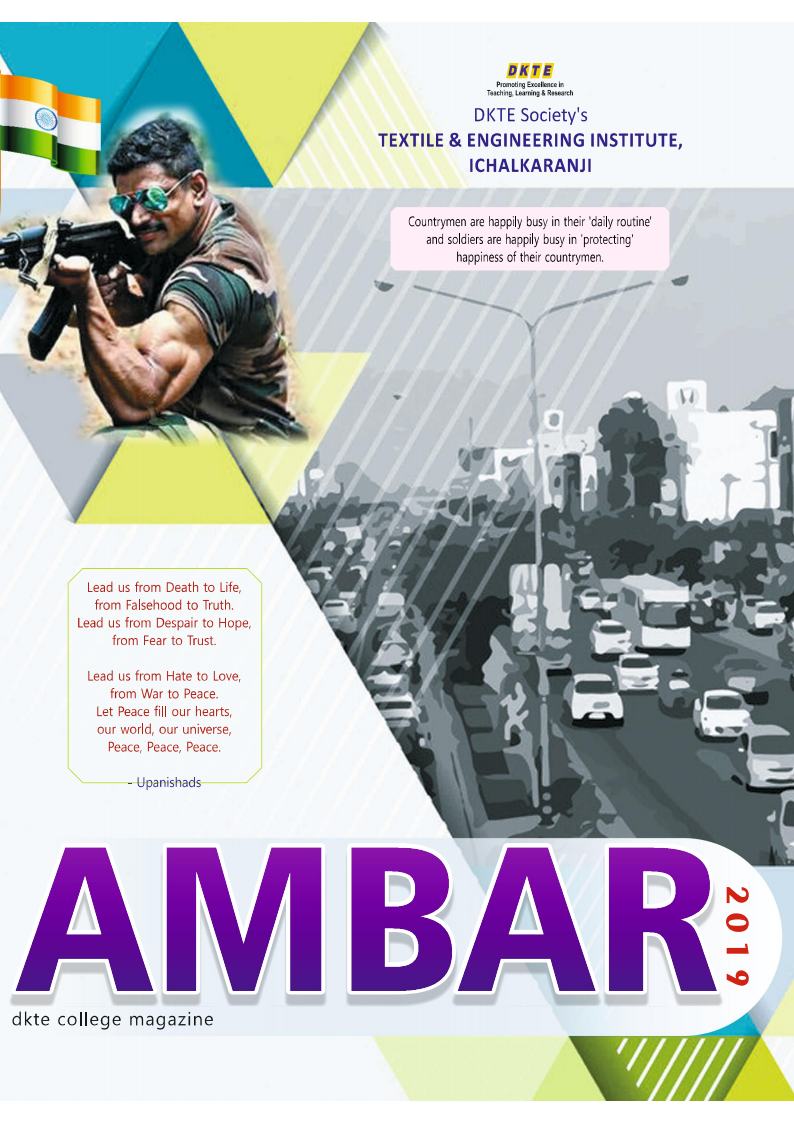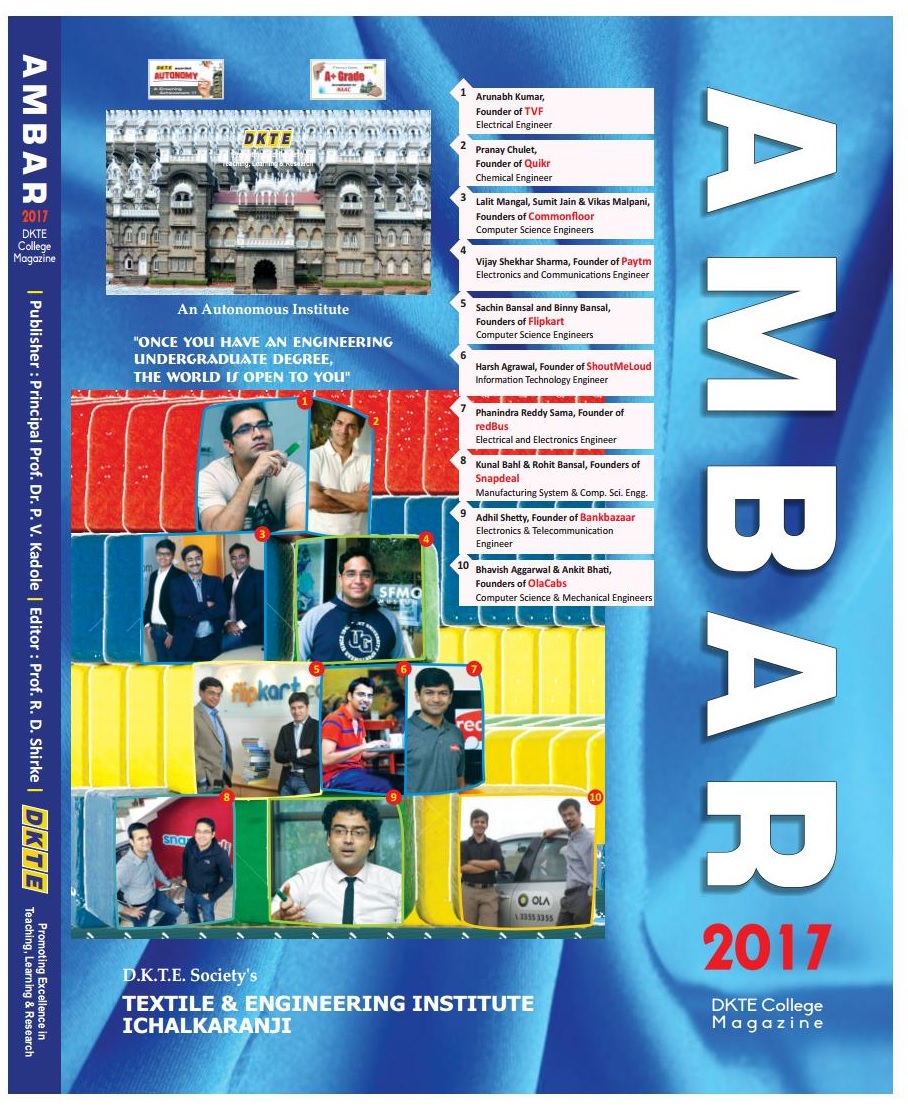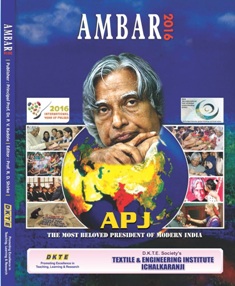|
Prof.(Dr.) Mrs.L.S. Admuthe Director |
|
The Textile & Engineering Institute enjoys a unique and prominent place amongst the institutions that are engaged in education, training, research and consultancy in various disciplines of Engineering in India. It has been catering to the needs of the industry for the past twenty-five years. The link of the institute with the industry has been cultivated all these years & it has already carved a niche for itself amongst the reputed engineering institutes in the country, emphasizing value-based technical education to the aspirants who wish to enter the area of the corporate world & be on the helms in the twenty-first century. |
|
HON. SHRI K. B. AWADE |
|
I extend a very hearty welcome to all of you. I am very happy to note that a small sapling planted in 1982 has grown into a huge banyan tree. It has been a hugely satisfying journey. I applaud the sincere efforts of all the faculty and staff that have put in endless hours of toil to achieve this. But, this is definitely not the end. I want this institute to grow even more and create engineers capable of taking on the new challenges of today. Educational Institutes have a critical role in providing the students with all the necessary inputs required to make them global citizens. In today’s advanced world, Institutes are more of a facilitator of knowledge than just a provider of knowledge. Students need to be given all the knowledge, skills and ability so that they are able to appreciate the changes happening in society and adapt to them. It will be my endeavor, to ensure that this institute remains always relevant. |
Reg. No. F/25027/Kolhapur
About Alumni Association
After each academic year every teaching institute becomes richer in terms of alumni students and serious approach is needed for making this richness mutually beneficial – both of the institute and for the alumni students.
As per as DKTE is concerned we are actively involved in alumni activities since 1989. DKTE Alumni Association is officially registered body with Charity Commissioner’s Office, Kolhapur from 2009. Our membership strength at present is more than 14,500 registered members and one interesting factor is all the engineering and management sections are actively involved in these activities.
Like other institutes we also work through the following activities:-
The alumni associations usually work through above mentioned steps only. But, the difference is seriousness kept while carrying out these activities and focusing on the result achieved.
We are proud about the results achieved so far. But, we are not self-satisfied. Our aim is to reach higher and higher and become a role model alumni association for others.
Board of Directors
|
Sr. No. |
Name |
Position |
|
1 |
Mr. Dhaval Kiran Desai |
President |
|
2 |
Dr. Uday Jingonda Patil |
Vice President |
|
3 |
Mr. Anil Uddhav Awasare |
Secretary |
|
4 |
Mr. Uday Appasaheb Nuli |
Treasurer |
|
5 |
Mr. Anilkumar K. Patil |
Director |
|
6 |
Mr. Sujeet Ashok Soundattikar |
Director |
|
7 |
Mr. Shrenik Ramgonda Patil |
Director |
Contact Details
D. K. T. E. Alumni Association,
Rajwada, P.O.Box. No.130,
Ichalkaranji-416 115
Dist: Kolhapur (MAHARASHTRA)
INDIA.
Mr. A. U. Awasare – 9420010221
Mr. A. S. Beg – 9960159517
| Ambar 2019 |
|---|
 |
| Ambar 2018 |
| Ambar 2017 |
 |
| Ambar 2016 |
 |
| Ambar 2015 |
 |
Page 33 of 40